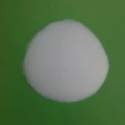How to feed the planet and employ 1.3 billion people
By 2050, the world's population will increase to 9.7 billion people. Will they have enough food for everyone to eat? Scientists say that enough. In all likelihood, in the future, mankind will consume less meat. The transition will be smooth and painless due to the appearance of quality substitutes. Already today, under the influence of fashion on a healthy lifestyle and for ethical reasons, residents of developed countries are actively switching to “green” food. For example, in the US, more than 30% of consumers call themselves "flexitarians". They are not against meat, but, if possible, choose “green” dishes.
Manufacturing of vegetarian products is one of the most dynamic segments of the food industry. In 2014, it was estimated at $8.2 billion, and by 2020 it is projected to exceed $19.5 billion. The classic “meat” business has to take this trend into account. Burger King and McDonald's add vegetarian items to the menu, and Tyson Foods, one of the largest producers of meat products, invests in start-ups that create vegetable analogs of animal protein.
Very few people believe that someday people will completely give up natural meat. Nevertheless, there are serious scientific works that explain what will happen to the world economy, if this happens not sometime in the future, but right now.
Full stuffing
Over the past 40 years, meat consumption in the world has tripled, with only 20% growth since the mid-2000s. Every year, mankind eats 64.6 billion of livestock and poultry. The most popular meat in the world is pork - 113 billion kg per year, followed by chicken, 108 billion kg, on the third - beef, 67 billion kg, on the fourth - lamb, 13 billion kg. If in 2013 the meat and fish industry market was estimated at $741 billion, in 2018 it will exceed $844 billion.
According to the report of the United Nations Livestock's Long Shadow, livestock products account for 1.4% of world GDP. If they abandon them, the world economy will lose $1.6 trillion.
In the middle of the 21st century, humanity will consume 73% more meat, fish and eggs, and 58% more dairy products than in 2011. In addition to the increase in the population, this will be due to the improvement of the well-being of the inhabitants of the third world countries. The least amount of meat is now eaten in Bangladesh, India, and Burundi - from 4 to 5.2 kg per year. In India, a kilogram of meat costs $4.55, and 25% of the population receives about 60 cents a day.
The main meat-eaters in the world are residents of the prosperous USA. But, as in poor countries, the level of meat consumption here is not constant - every year Americans eat it less. 15 years ago the average American ate 124.8 kg of meat a year, and today - 120 kg. Those who have money for meat, choose its vegetable counterparts.
The world without meat
If humanity suddenly stops eating meat right now, global mortality will decrease by 6-10%, that is, by 8 million deaths per year, says the Oxford scientist. Reducing chronic diseases will reduce bills for medicine, which will save about 2-3% of world GDP.
Meat accounts for about 40% of the agricultural market. For the needs of animal husbandry, today more than 30% of all ice-free land is used, which is more than for any other kind of human activity. In industrialized countries, half of the land suitable for agriculture is given as fodder crops. It is the needs of animal husbandry that are responsible for cutting down 72% of forests and consuming 32% of drinking water. In total, 75% of fresh water consumed by mankind is spent on agriculture.
The disappearance of 20 billion chickens, 1.5 billion cows, 1 billion sheep and 1 billion pigs from the planet will benefit nature. Consumers often do not think about the role of livestock in the greenhouse effect. Thus, in the United States, when producing meat for a family of four people, more greenhouse gases are emitted into the atmosphere than when two families use this family. The production of animal protein accounts for 14.5% of the global greenhouse gas emissions. Among them is carbon dioxide - 9% of global emissions, methane - 37%, nitrous oxide - 66%. For comparison, cars that consumers accuse of air pollution are responsible for 15% of harmful emissions. But there will, of course, be negative consequences.
For about 1.3 billion people on Earth produce and sell meat. Almost 1 billion of these people live below the poverty line. 600 million are small farms in South and South-East Asia, Africa and the Middle East. For these farmers, livestock is the main source of nutrients and labor for growing crops, as well as the most important (if not the only) source of money.
However, if jobs for all these people will not be easy to find, then subsistence will appear itself - just 97% of the world soybean harvest, which today go to feed livestock, will be eaten by mankind. To prevent starvation, today we need at least 40 million tons of food, but this is almost 20 times less than the annual volume of grain eaten by farm animals.
The vacated agricultural land - about 33 million square meters. M (this is the approximate size of Africa) - will lead to a reduction in the cost of land, and hence of housing and agricultural products.
However, to grow vegetables, fruits or grains will be obtained only by 20% of this territory - most of the land will be too dry. Without human intervention, this land will turn into a desert.
A staff member at Cambridge University, Ben Phalan, who studies the balance between food demand and biodiversity, pays attention to another threat. “Without livestock, the old life will become impossible for many people,” he said. First of all, this applies to the Mongol and Berber nomads who will be forced to settle in cities and thus lose their cultural identity. In addition, each people have customs and traditions associated with livestock.
Full ersatz
In fact, it is possible to reduce the negative impact of livestock on the economy, ecology, and health without radical measures - it is enough to rethink the consumption of meat and the consumption of land and water for the cultivation of each kilogram. “With all the problems that we face when we are getting a piece of bread, we should not ask” what we put on our plates", but ” how we put it there, “says Nir Ohad, a professor at the University of Tel Aviv. Therefore, while the poorest countries of the world are trying to satiate their “meat” appetite and increase consumption, the richest countries, on the contrary, are increasingly leaving for plant or artificial substitutes.
Soy products
In 2015, retailers around the world sold more than 200,000 tons of meat substitutes at $3.5 billion. The world market of meat is growing at an average annual rate of 6.8% and reaching $5.2 billion by 2020. Today, the main substitute for animal protein - soybean: it accounts for 68.2% of all meat substitutes. Other analogs of animal protein until 2020 will grow by 10.1% annually, as more and more of the world's population chooses products without soy and gluten. Most of the meat substitutes are consumed by Europeans - they account for 41% of the world market.
The market for meat analogs includes products from tofu, tempeh, soy and other vegetable proteins. According to producers, such products resemble real meat to taste, aroma and appearance, but it is healthier and cheaper. “The next few years will be the key to the meat alternative market,” says Joseph Puglizy, a professor of biology at Stanford University. - Using a wide range of sources of vegetable protein, we will create a whole palette of textures and flavors, for example, jerky, sausages, pork."
Founder of Beyond Meat Ethan Brown says that meat has five main components: amino acids, lipids, water, some minerals, and carbohydrates. All these elements can be found in plants, and then collect them according to the “architecture of meat”. As a result, even those skeptics who believe that any substitute will resemble a piece of cardboard to taste will come to artificial meat. To create such a product requires 99% fewer resources than a similar piece of meat. Due to the economic benefits of production, by the year 2054 alternatives will replace a third of the industrial meat products.
In addition, as an alternative, the UN offers insects. There are so many on the planet that you can easily feed billions of people. Inhabitants of Africa, Latin America, and Asia eat 1,400 kinds of locusts, grasshoppers, spiders, wasps, worms, ants, beetles and other arthropods.









